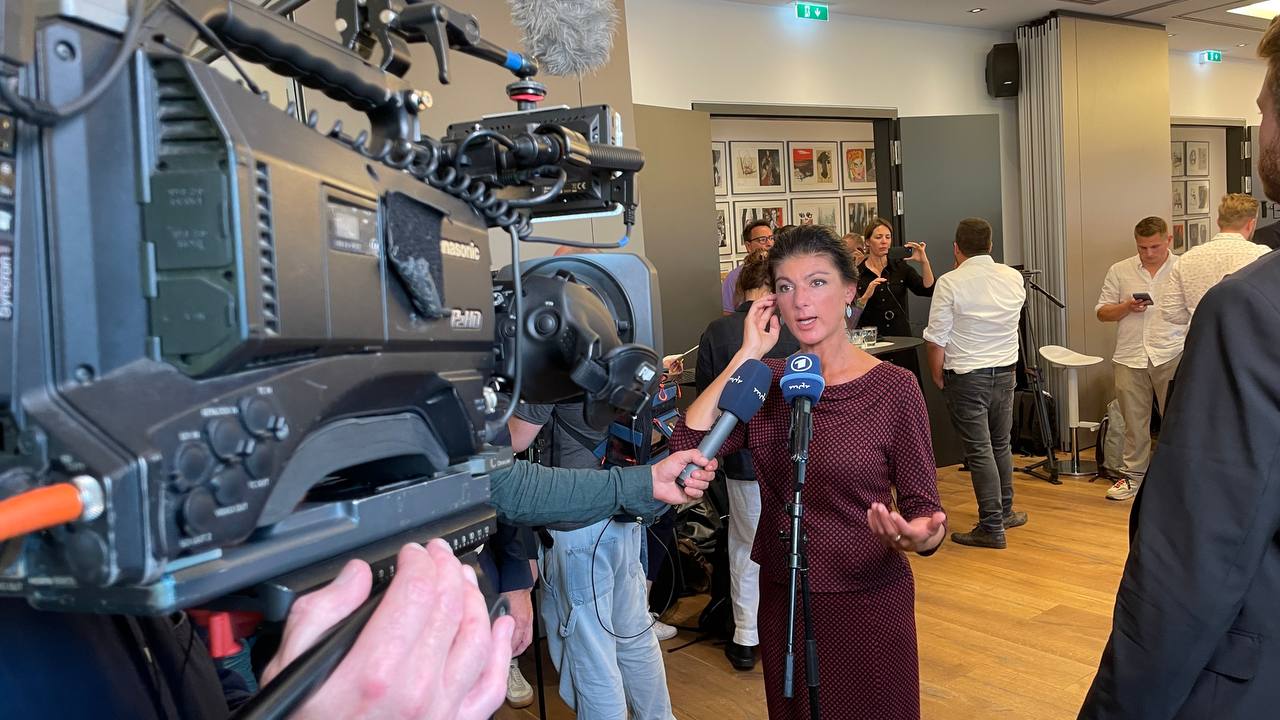
Sahra Wagenknecht
Sahra Wagenknecht, leader of the left-wing nationalists Bündnis Sahra Wagenknecht (BSW), is weighing up whether to sue vice chancellor and Green Party politician Robert Habeck, who accused her party of being “paid” for its pro-peace stance on the Ukraine war.
Just like the right-wing Alternative für Deutschland (AfD), the BSW has criticised the current left-liberal government—which includes the Greens—for halting direct Russian gas imports and sending weapons to Ukraine. Wagenknecht has argued that the former decision has harmed the German economy and the latter risks escalating and spreading the war to other parts of Europe.
This stance has been labelled “pro-Russian.” Robert Habeck went even further by telling a campaign event in Dresden last Thursday that “everyone knows that [AfD and BSW] are paid directly by Russia and Beijing.”
Wagenknecht called Habeck’s comments “outrageous and unsophisticated,” and said she is considering legal action against the vice chancellor. Party leader Habeck’s statements could “at best be excused by the fact that the Greens have hit rock bottom.”
Indeed, the Greens, who have been blamed for imposing a radical climate agenda and tax hikes on the ordinary citizens of Germany, performed miserably at the regional elections in two eastern states on September 1st. In Saxony, they just about reached the 5% threshold to enter parliament, but in Thuringia they failed to do even that, receiving only 3.2% of the votes.
Meanwhile, the BSW, which was only founded by Wagenknecht at the beginning of this year, came third in both states, receiving 15.8% in Thuringia and a respectable 11.8% in Saxony.
Wagenknecht said that instead of focusing on his political opponents, Habeck should take a look at his own party’s financing, saying that the Greens—who have been the most hawkish members of the three-party coalition in Berlin—are being funded by arms companies.
While the Greens have been effectively eliminated from taking part in a government in Saxony and Thuringia, BSW has emerged as a kingmaker in the two eastern states following the elections, which dramatically altered the political landscape.
Wagenknecht has made it clear that her party would only enter into a coalition if the new governments commit to rejecting arming Ukraine and refuse the stationing of U.S. medium-range missiles in Germany. With the centre-right CDU most likely to lead the next government in both states, Wagenknecht said there are issues where her party can come to an agreement with the CDU, such as education and internal security.
„An so einer Regierung würden wir uns nicht beteiligen“ – BSW-Chefin @SWagenknecht erklärt, unter welchen Bedingungen ihre Partei in Sachsen und Thüringen mitregieren würde – und, ob sie bei den Gesprächen mit am Tisch sitzen wird. pic.twitter.com/eEulIwqwRD
— Bericht aus Berlin (@ARD_BaB) September 2, 2024
